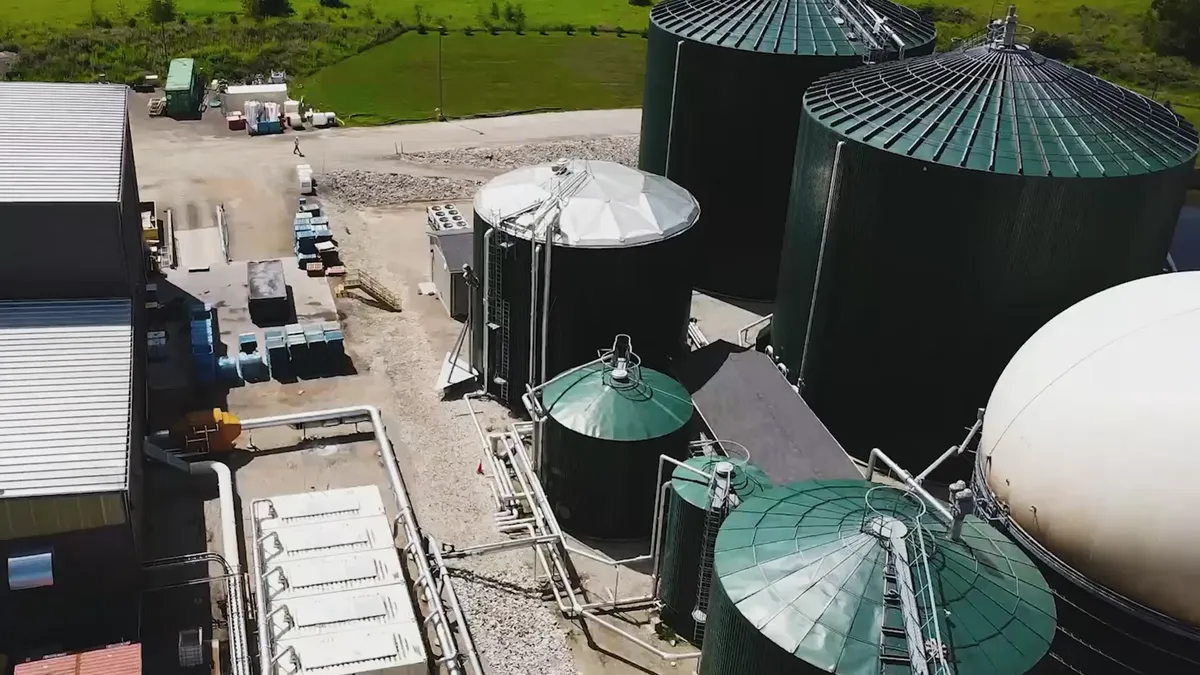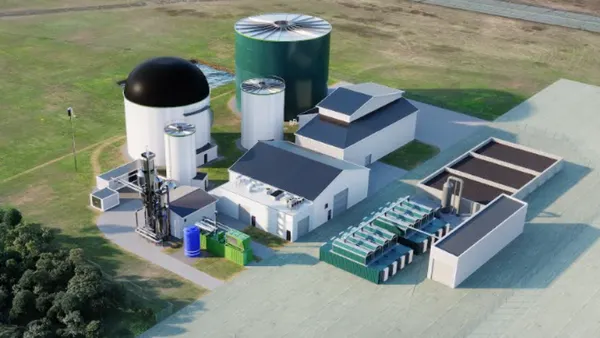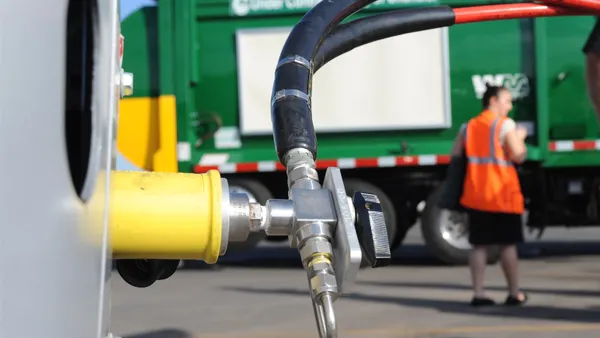The market for natural gas derived from biogenic sources has grown at a notable clip this year, driven by corporate sustainability pledges and public incentives designed to promote production of renewable natural gas over fossil fuel-derived natural gas.
At the start of the month, RNG developer Terreva Renewables announced it had built four landfill-to-RNG facilities since its launch a year prior and had raised more $417 million. Their announcement followed news of other major deals in the sector over the summer, including one of the largest ever open-market RNG deals, which was between Vanguard Renewables and AstraZeneca.
Industry participants also continue to cite incentives set out by the U.S. EPA’s Renewable Fuel Standard and California’s Low Carbon Fuel Standard as major drivers of both investment and revenue for companies able to cash in.
Below, we’ve gathered news that came from the RNG sector this month.
Generate Upcycle doubles down on RNG
Generate Upcycle is adding RNG capacity at several of its anaerobic digestion facilities, taking advantage of the strong tax credit markets. Bill Caesar, president of the Generate Capital subsidiary, said his company currently produces about 400,000 gigajoules of capacity per year with existing capacity and is planning to add 1 million gigajoules of capacity at existing sites.
That includes the company’s facilities in London, Ontario, and Buffalo, Niagara and Cayuga, New York. At the latter facility, Caesar said upgrades would cost roughly $15 million to $16 million, which would generate returns via the strong RNG credit market over the life of the project, estimated at roughly 20 years. The company is also adding capacity at two sites in the United Kingdom.
Caesar said he would look to maximize RNG capacity “pretty much anywhere I can” so long as financials and permits allow. He said he was also looking at a site in Michigan for possible added capacity. He also noted that while much of the dairy waste-based RNG gets sold into California’s Low Carbon Fuel Standard market due to its extremely low carbon-intensity score, his food waste-based RNG also commands a low score and has plenty of market demand.
Opal Fuels announces joint venture with South Jersey Industries
The 50-50 joint venture plans to develop, construct, own and operate RNG facilities, per a press release. The first such facility will be at a solid waste landfill in Egg Harbor Township, New Jersey, owned by the Atlantic County Utilities Authority.
The Atlantic RNG facility is expected to produce more than 603,000 MMBtus of RNG annually via landfill gas capture and refinement. Jonathan Maurer, co-CEO of Opal Fuels, said in a written statement that the partnership will allow the two to bring more RNG capacity to New Jersey.
“This joint venture furthers OPAL Fuels’ growth strategy as we look forward to leveraging our operational expertise to work with landfills to maximize the value of their resource and meet their ESG goals faster by displacing diesel fuel with RNG in heavy-duty truck fleets,” he said.
Anaergia secures loan for Rhode Island Bioenergy Facility
Anaergia closed a $20 million loan on Thursday to continue work on its Rhode Island Bioenergy Facility. The facility, located in Johnston, Rhode Island, processed up to 100,000 tons of organic waste per year when Anaergia acquired it in 2021. The company announced plans to upgrade the facility’s technology following the $1.7 million deal to acquire it from Orbit Energy Rhode Island, a business originally co-owned by Blue Sphere and Entropy Investment Management.
Following its acquisition, Anaergia began looking for a partner to agree to an RNG offtake agreement at the facility. In January, the company announced it signed such an agreement with Irving Oil. Anaergia estimated it would supply about 350 million cubic feet of RNG to the pipeline annually in Rhode Island once upgrades were complete.











